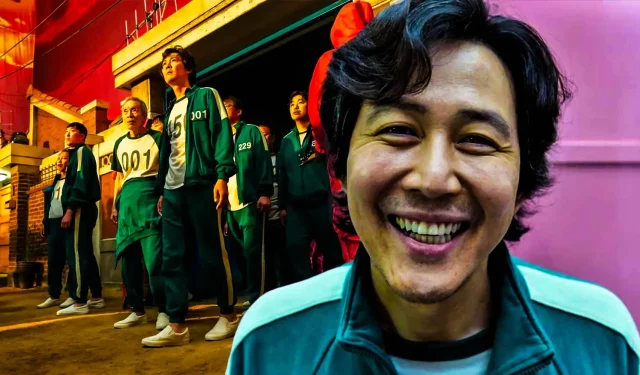
Netflix’s acclaimed Korean drama series, Squid Game, captivates viewers with a complex narrative that culminates in a surprising ending, leaving fans eager for Season 2. The finale of Squid Game closes the deadly tournament in a gripping and somber manner, paralleling themes found in iconic survival thrillers like The Hunger Games and Battle Royale. The thought-provoking commentary on wealth disparity and human survival shines through, ensuring that audiences remain engaged until the very last moment.
The journey follows Seong Gi-hun, a divorced man entangled in crippling debt, whose desperation leads him to participate in the perilous Squid Games. The season wraps up with the climactic episode titled “One Lucky Day,”where Gi-hun, alongside his childhood friend Cho Sang-woo, fights for the grand prize of 45.6 billion won (around $38 million USD). The stakes couldn’t be higher as both characters face a life-or-death situation.
The Winner of The Squid Game Tournament: Gi-hun’s Victory Explained
Why Sang-woo Takes His Own Life Instead of Escaping
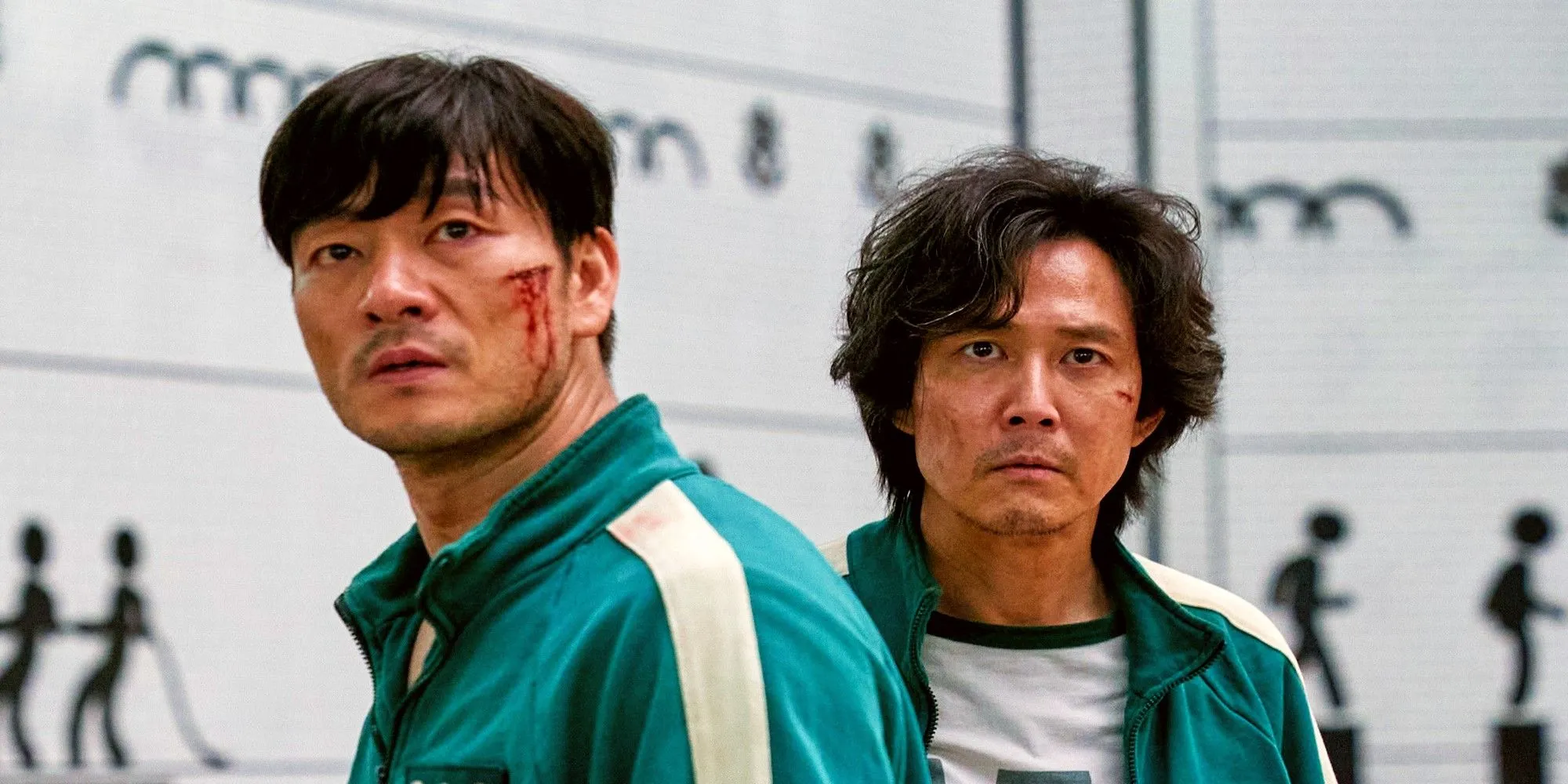
The final challenge of Squid Game unfolds in the last episode, featuring the titular squid game which demands intense mental and physical prowess. Players alternate between offensive and defensive roles with Gi-hun striving to reach the squid’s head while Sang-woo valiantly tries to thwart him. The impending death of one player looms over the challenge, escalating the tension to unimaginable heights.
An emotionally charged contest ensues, manifesting a brutal showdown where moral boundaries blur. Despite Sang-woo’s violent tactics—he nearly ends Gi-hun’s life with a concealed knife—Gi-hun ultimately chooses empathy over riches. As he gains control of the situation, he remembers the tournament’s rules allowing a game to end if a majority consents. He extends an olive branch to Sang-woo, proposing they leave together.
However, this invitation is tragically rejected as Sang-woo takes his own life, leaving Gi-hun as the reluctant victor. Several motivations underlie Sang-woo’s grim decision: guilt over the lives lost during the competition and an unwillingness to face the disappointment of returning home empty-handed to his mother.
Hwang Jun-ho’s Fate Following the Season 1 Ending
Actor Lee Wi Ha-Joon Confirmed for Season 2

Hwang Jun-ho, posing as a guard to gather proof of the tournament’s horrors, encounters a dire fate. During a confrontation with the Front Man, who unveils himself as Jun-ho’s long-lost brother, In-ho, he is shot and presumed dead after plummeting off a cliff into the ocean. The ambiguous conclusion of Season 1 leaves Jun-ho’s fate uncertain, igniting speculation about his survival.
The prospect of his survival is given weight as Jun-ho’s shoulder injury may not have been fatal. Yet, with the deadly tournament continuing, his critical evidence never makes it back to Seoul. Fortunately, actor Wi Ha-joon’s return in Season 2 has been confirmed, hinting that Jun-ho might either reappear in flashbacks or have managed to survive his fall. This upcoming season will delve into his path following the showdown, as well as the implications of his missing evidence on the ongoing tournament.
The Villain Reveal in Squid Game Season 1
Oh Il-nam: The Mastermind Behind the Tournament
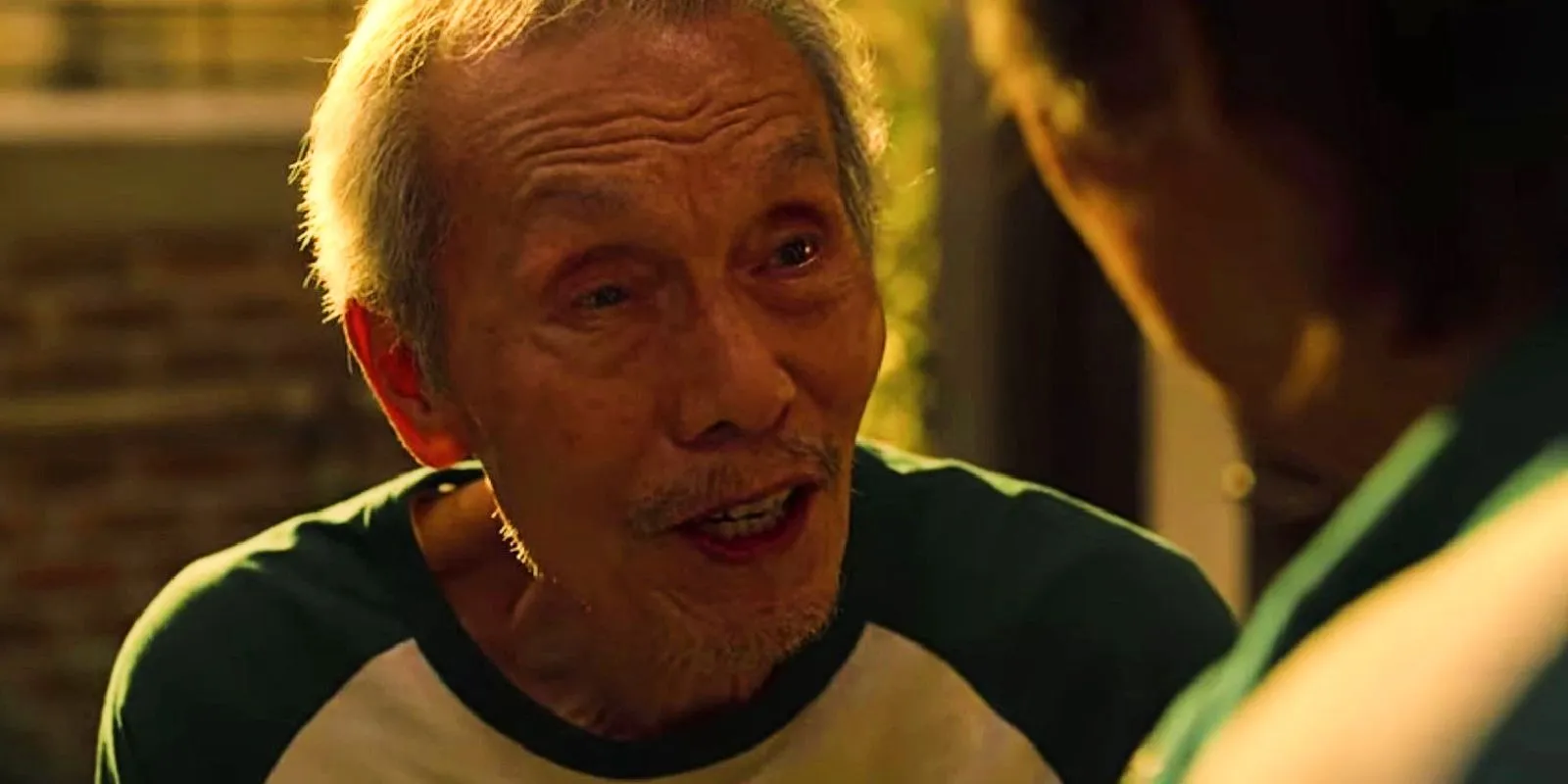
While viewers can expect the intense fight between Gi-hun and Sang-woo to dominate the finale, an even more compelling twist is unveiled. The conclusion reveals that Oh Il-nam, portrayed as a mere player, is actually the architect behind the Squid Games. In a gripping turn, he reveals himself to Gi-hun as he lies on his deathbed inflicted with a brain tumor.
During this stark revelation, Il-nam elaborates on his motives, suggesting that his actions stemmed from a profound boredom that wealth has bequeathed him. As a moneylender, his role bears responsibility for the desperation pushing individuals into the game, injecting a rich social commentary into the series.
Il-nam’s participation in the games stems from a desire to “feel something,”which starkly contrasts the way Gi-hun, burdened by a sense of guilt, approaches his newfound wealth. The final bet they engage in encapsulates their contrasting perspectives, further enriching the narrative’s thematic depth.
The Deeper Meaning Behind Gi-hun and Il-nam’s Last Bet
Symbolic Undertones in Gi-hun’s Choice
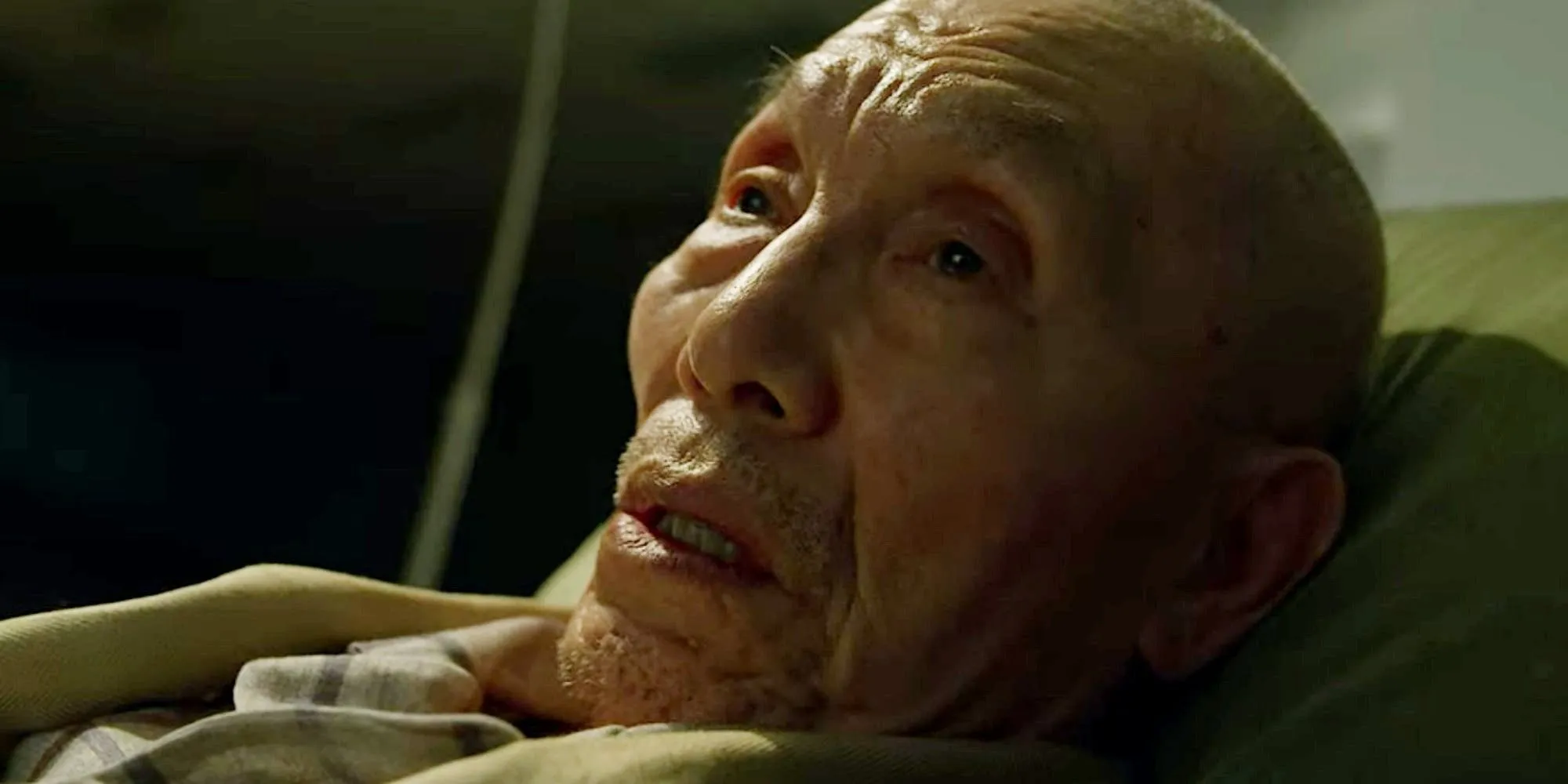
The climactic moment showcasing Il-nam’s true identity resonates beyond a mere plot twist; it serves as a vital exposition of Squid Game‘s overarching message. Their conversation culminates in a poignant wager about a homeless man left outside in freezing temperatures, provoking Gi-hun to reflect on societal indifference.
Gi-hun initially dismisses the bet but soon realizes that it metaphorically represents the larger moral discourse central to the narrative. The contrast between Il-nam’s voyeuristic entertainment and Gi-hun’s innate empathy delineates the divide between wealth and moral responsibility. Remarkably, Gi-hun ultimately wins the bet when an unseen passerby aids the homeless man—but Il-nam passes away before witnessing the outcome.
Setting the Stage for Season 2 of Squid Game
Gi-Hun’s Pursuit of Revenge Against The Front Man
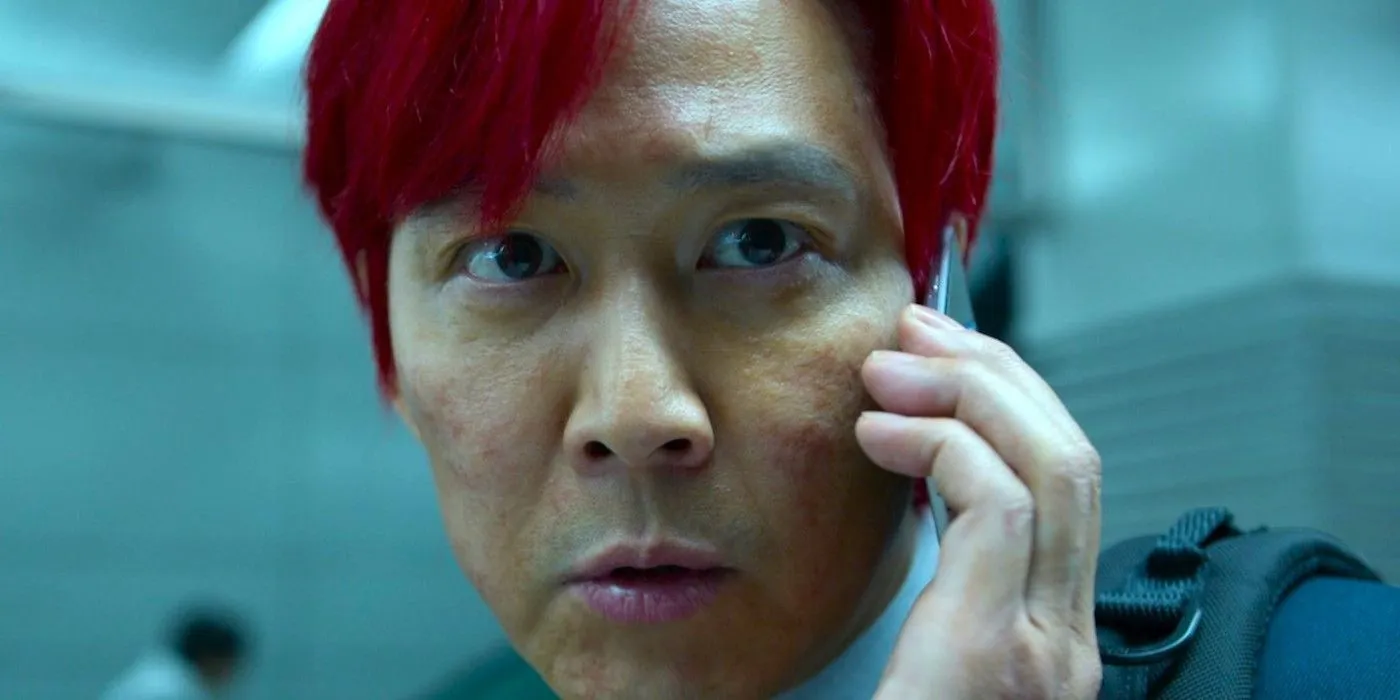
In the final moments, Gi-hun encounters The Salesman while heading to the airport for a reunion with his daughter in the U.S. Instead of boarding the plane, he chooses to confront the figure responsible for recruiting participants for the deadly game, illustrating his unwillingness to turn his back on his traumatic past. His decision not to board the flight lays the groundwork for the vengeful path awaiting him in Season 2.
Recent teasers for Season 2 highlight Gi-hun’s exchange with The Front Man, suggesting the latter is aware of Gi-hun’s determination for revenge. Confrontations seem inevitable as Gi-hun seeks to dismantle the sinister organization that makes the Squid Games possible, paving the way for deeper storytelling in future seasons.
An Alternate Ending: A Different Narrative Path
Insights from Creator Hwang Dong-hyuk on Alternate Ending
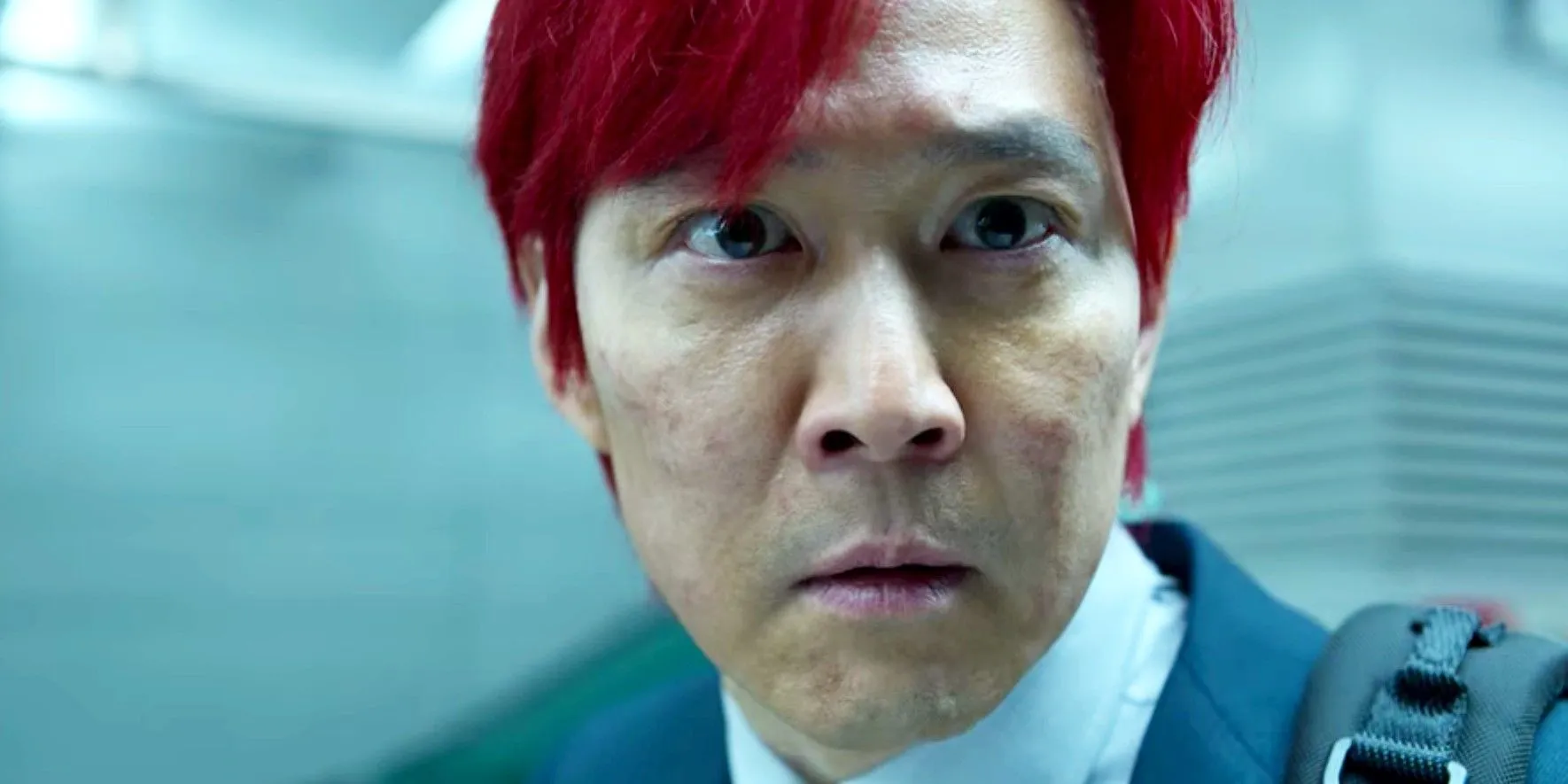
As viewers reflect on the startling finale of Season 1, anticipation builds for what lies ahead. During production, there were uncertainties surrounding the series’ reception, prompting creator Hwang Dong-hyuk to contemplate an alternate conclusion that could fit a self-contained miniseries format (Entertainment Weekly).
“We actually wrestled between two different scenarios for the ending. There was one, the other alternate ending, where Gi-hun would get on the plane and leave. And then there was of course the one where he would turn back and walk towards the camera. We constantly asked ourselves, is it really right for Gi-hun to make the decision to leave and go see his family, to pursue his own happiness? Is that the right way for us to really propose the question or the message that we wanted to convey through the series?”
Ultimately, Hwang’s decision to end on a cliffhanger allows for the expansion into Season 2. He posited that a departure from the game would truncate the essential thematic questions posed throughout the series. Without Gi-hun’s turning back, the intricate narrative of Squid Game would lack significant depth, making the anticipation for Season 2 palpable.




Leave a Reply